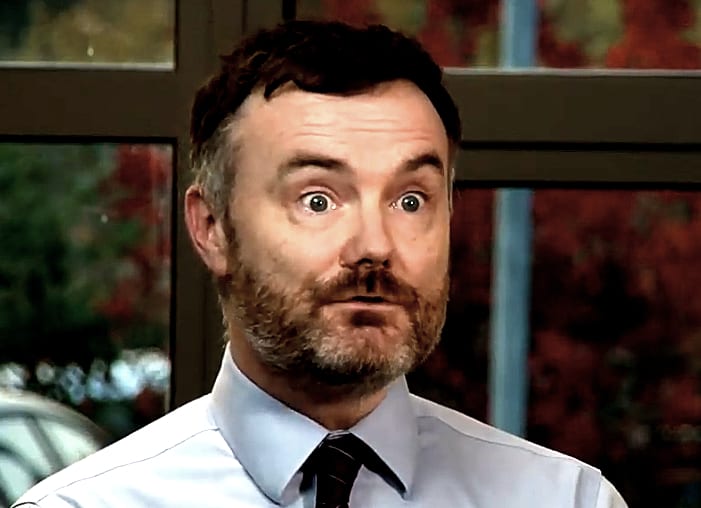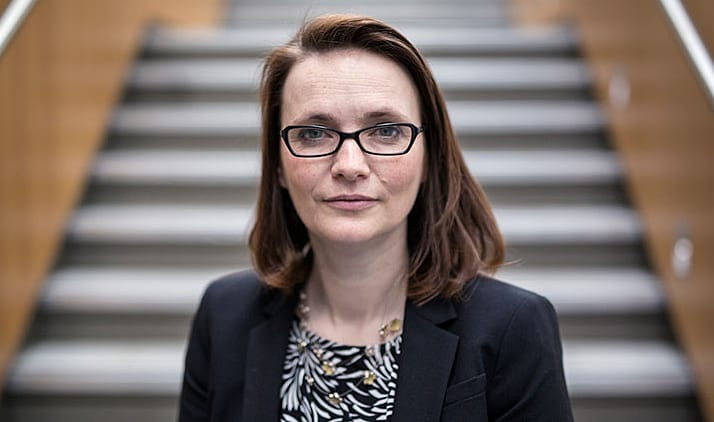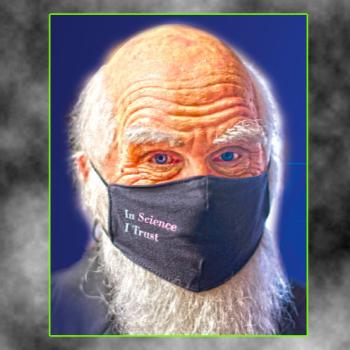
Humanists, ‘who actively oppose all religion,’ will be handed control over religious education in Welsh schools, according to Simon Calvert, above, the Christian Institute’s Deputy Director for Public Affairs – and this, he warned, will lead to ‘chaos.’
What set off Calvert’s hysterical rant about foxes being put in charge of the henhouse is the Welsh Government’s proposed new education Bill that will change the law on religious education to make it clear that humanism must be taught about equally alongside the major religions.
His attack on Humanism and the Welsh Bill follows approval voiced in July this year by Wales Humanists, which has long campaigned for a curriculum that treats religions and humanism equally. The group said it will make Wales “a world-leader in inclusive education.”
The Bill requires that teaching and learning in religious education – which will be renamed religion, values, and ethics (RVE) – must:
Reflect the fact that a range of non-religious philosophical convictions are held in Great Britain.
It also makes provision for “a committee of persons representing … non-religious philosophical convictions’ to join Standing Advisory Councils on RE (or SACREs), the bodies that oversee RE and the development of the syllabus at local authority level.
These changes are designed to clarify the law in line with the Human Rights Act, according to which religious and non-religious worldviews must be given equal treatment.
Humanists UK also pointed out that:
As well as clarifying that humanism should be fully included in RVE, the Bill also seeks to ensure that as many pupils as possible receive the subject in a pluralistic, non-partisan way.
All children in schools without a religious character will be taught objective RVE in line with the locally agreed syllabus, but parents whose children attend voluntary aided faith schools – and who have previously been forced to choose between indoctrinatory faith-based RE and opting out altogether – will now be given the right to demand lessons taught in accordance with their locally agreed syllabus too.

Humanists UK Education Campaigns Manager Dr Ruth Wareham, above, commented:
We are delighted that the Welsh Government’s Curriculum and Assessment Bill has now been laid before the Senedd. If successful in becoming law, this Bill will make Wales a world-leader in inclusive education by implementing policy changes we have been working towards for decades.
We are aware that the Catholic Education Service is lobbying against these urgently required reforms. It is therefore imperative that as many members of the Senedd as possible support this Bill in order to make these important proposals a reality.
Christian Concern, on the other, hand sees the Bill as a full-on attack on religion, saying it will scrap:
Existing safeguards with nothing offered in their place and will imposes a compulsory ‘Relationships and Sexuality Education’ curriculum on all pupils from the age of three.
It will also replace RE with the new ‘Religion, Values and Ethics’ (RVE) subject, which requires all pupils to study atheism or ‘non-religious’ views, such as Humanism.
Calvert said:
Members of the Senedd are being asked to vote blind for a sex education curriculum they haven’t seen, whilst stripping away protections that took decades to achieve.

He said he had “no idea” why Education Secretary Kirsty Williams, above, would want to abolish the safeguards, as it leaves sex education:
Wide open to the risk that some teachers could opt for unsuitable materials that would not have been allowed under the previous law.
He added:
Sex education groups have a long track record of pushing unsuitable materials on schools. Teachers are under huge time pressure and few specialise in sex ed, so they could be dependent on these outside agencies for materials.
Currently, individual primary schools can decide whether to provide sex education. It must be provided in secondary schools, but parents have a right to withdraw their children. This is an important backstop against unsuitable teaching, since schools will not want to do anything that triggers parents withdrawing children. But this right is being abolished, despite overwhelming public support for it in Government consultations.
Under the new system for RVE, a non-religious committee in each area is given a veto power over all religious teaching.
This means humanists, who actively oppose all religion, will be handed control over religious teaching in schools
Calvert continued:
The equally sensitive issue of Religious Education is being blown wide open. Pupils will face compulsory atheism lessons with no right of withdrawal and no limit on how much ‘Religious Education’ will actually be given over to anti-religious ideologies.
With the rearrangement of the system for agreeing the RE syllabus, groups like Humanists UK, whose stated goal as recently as 2011 was to rid society of religion, are being given a veto on the content of RE. This is ridiculous.
Parents are not going to like being side-lined from their children’s education on sex and religion – the two most controversial subjects you could imagine. And schools are not going to like being forced to teach controversial material that they, or the families they serve, disagree with. It could cause chaos.
Humanists UK’s aim to “rid society of religion” is a figment of Calvert’s deranged imagination. On the issue of constitutional reform, Humanists UK says:
We want the UK to become a secular state, guaranteeing equal treatment for everyone, regardless of religion or belief. This means creating a level playing field for everyone, and so we campaign to see the Church of England and Church of Scotland disestablished, and the inequalities associated with having an established religion removed.
This includes removing the 26 bishops who sit as of right in the House of Lords, with appointments or elections to the chamber instead being done for secular reasons.
In an examination of Humanism, the BBC quoted the International Humanist and Ethical Union (now Humanists International) as saying that Humanism:
Is a democratic and ethical life stance, which affirms that human beings have the right and responsibility to give meaning and shape to their own lives.
It stands for the building of a more humane society through an ethic based on human and other natural values in the spirit of reason and free inquiry through human capabilities.
It is not theistic, and it does not accept supernatural views of reality.
If that’s “ridding society of religion,” then bring it on, I say. The sooner the better!

 I’d love a cup of coffee
I’d love a cup of coffee













